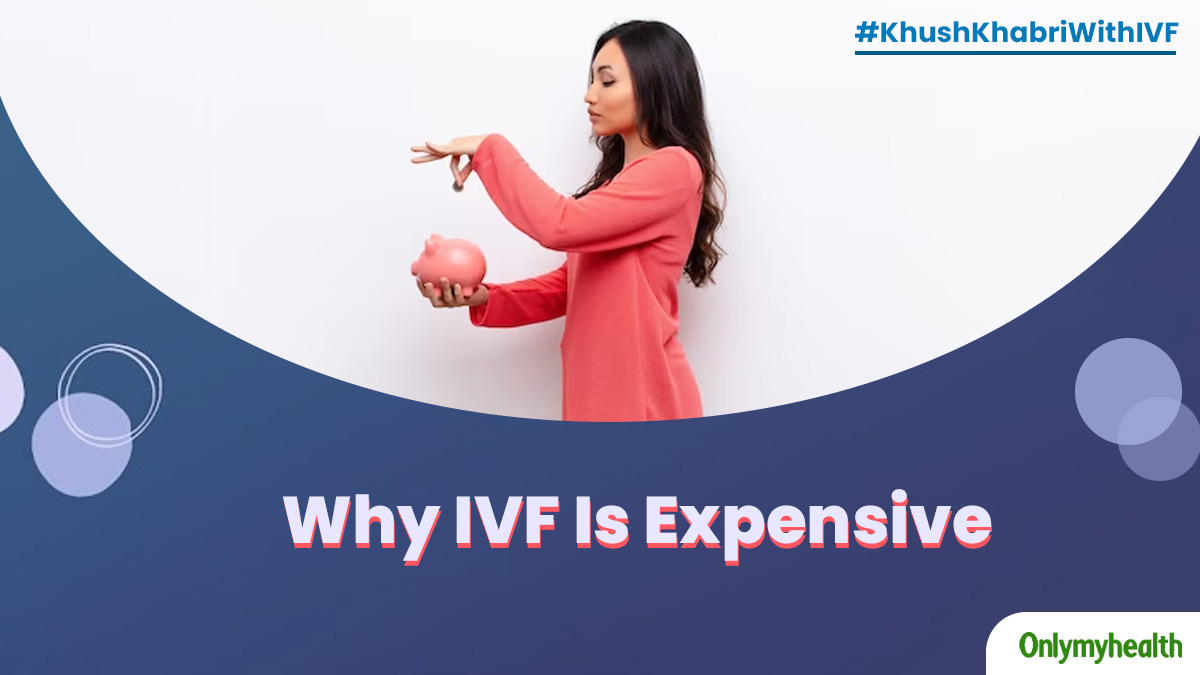
#KhushKhabriWithIVF: Over the years, IVF treatment has gained considerable popularity among couples grappling with fertility challenges. Despite its substantial price, many perceive IVF as a worthy investment for their future aspirations. However, the cost factor can pose a deterrent for certain couples. One of the most common query about IVF is that why is this treatment so costly? According to Dr Meenakshi Dua, Clinical Director, ART Fertility Clinics, Gurgaon, the substantial expenses associated with IVF in India predominantly stem from the intricate laboratory procedures integral to the treatment, encompassing the meticulous culturing, freezing, and thawing of embryos. These procedures are not only time-intensive but also hold immense significance in shaping the ultimate cost of IVF treatment in India.
Why is IVF expensive?
Within an assisted reproductive technology (ART) program, embryo culture assumes a paramount role in optimizing embryo quality and ensuring a higher likelihood of delivering a healthy baby. Numerous critical aspects necessitate meticulous attention throughout the embryo's developmental journey. Here are the methods which put of a challenge in costing of IVF for families who opt for this procedure: -
Comprehensive Culture Medium: A complete culture medium containing all 20 amino acids is essential to provide the necessary nutrients for optimal embryo growth.
Attention to Laboratory and Clinical Factors: Close attention must be paid to both laboratory and clinical factors throughout the embryo culture process. This ensures that all aspects of the environment and procedures contribute to the favorable development of the embryos.
Also Read: Can I consider IVF After Miscarriage?

Low Oxygen (O2) Environment: Maintaining a low oxygen environment is crucial for promoting embryonic development. This controlled oxygen level helps mimic the natural conditions within the female reproductive system, supporting healthy embryo growth.
Low/No Volatile Organic Compounds (VOC) Environment: Minimizing or eliminating exposure to volatile organic compounds is important during embryo culture. VOCs can potentially have harmful effects on embryo development and viability, so a controlled environment with reduced VOC levels is maintained.
Freezing and Maintaining the Appropriate Temperature: To optimize the IVF culture system, it is vital to use and maintain the appropriate temperature during cell handling and culture. Improper temperatures can compromise cell function and development, resulting in reduced IVF outcomes. Blastocyst vitrification, a rapid freezing process, is commonly used for cryopreservation. This technique allows for the freezing of developed blastocysts, providing flexibility in the timing of the embryo transfer and improved outcomes in certain cases.
Thawing of Embryos: Thawing embryos is a crucial step in the IVF process. It involves recovering the physiological temperature of embryos and replacing the cryoprotectant molecules used for preservation at -196ºC with intracellular water. This reactivates biological activity, preparing the embryos for transfer and implantation.
Also Read: 10 Things To Remember Before Undergoing IVF Treatment

Why IVF is Better?
Despite the high cost associated with IVF treatment, it offers several benefits for couples experiencing infertility. The most significant advantage is that it provides an opportunity to have children when other infertility treatments have failed. Additionally, IVF has found external uses in different scenarios:
Preservation of Fertility: IVF can be utilized to preserve fertility in individuals who are at risk of losing their reproductive capabilities due to medical treatments such as chemotherapy or radiation therapy. By retrieving and freezing eggs or embryos before undergoing these treatments, individuals can potentially have the option of starting a family in the future.
Genetic Screening: IVF procedures can incorporate preimplantation genetic testing (PGT), which allows for the screening of embryos for certain genetic disorders or chromosomal abnormalities. This enables couples with a known risk of passing on genetic conditions to select embryos free of those conditions for transfer.
Male Factor Infertility: IVF can be used to bypass male factor infertility issues by directly injecting sperm into the egg during a procedure known as intracytoplasmic sperm injection (ICSI). This technique enhances the chances of fertilization and subsequent embryo development, increasing the likelihood of achieving a successful pregnancy.

Potential Drawbacks of IVF
However, IVF treatment also has some drawbacks. It is not always successful, and some couples may require multiple cycles of IVF treatment to achieve a successful pregnancy, leading to emotional and financial strain. Moreover, IVF treatment can increase the probability of certain health issues, such as ectopic pregnancy, multiple pregnancy, and birth defects. These factors should be carefully considered before undergoing IVF.
IVF treatment can be costly in India, but it remains a beneficial option for struggling couples. While the associated risks should be considered, the potential benefits, such as having a child, make IVF a worthwhile investment for many individuals.
FAQs
Here are some other commonly asked questions on IVF answered by Dr Meenakshi Dua.
1)Is IVF treatment guaranteed to result in pregnancy?
No, IVF treatment is not guaranteed to result in pregnancy. The success rates vary depending on various factors, including the age of the woman, the quality of the embryos, and the underlying causes of infertility.
2)What are the common side effects of IVF treatment?
Common side effects of IVF treatment may include bloating, mild cramping, breast tenderness, and mood swings. These side effects are typically temporary and subside after the treatment cycle.
3)How many cycles of IVF treatment are usually required?
The number of IVF treatment cycles required varies for each couple. Some couples may achieve success in the first cycle, while others may require multiple cycles to achieve a successful pregnancy.
4)What are the risks associated with IVF treatment?
IVF treatment carries certain risks, including the possibility of ectopic pregnancy, multiple pregnancies (e.g., twins or triplets), ovarian hyperstimulation syndrome (OHSS), and a slightly increased risk of birth defects. It is essential to discuss these risks with your healthcare provider before undergoing IVF.
5)Does insurance cover the cost of IVF treatment?
Insurance coverage for IVF treatment varies depending on the country and the insurance provider. In some cases, certain aspects of IVF treatment may be covered, while others may not. It is advisable to check with your insurance provider regarding the specifics of coverage.







